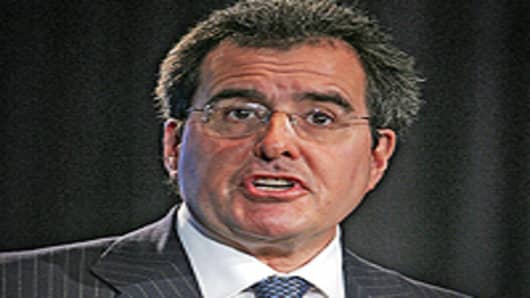Mr. Chernin has not been a part of meetings with G.E. and its bankers about deal terms, but has been an active participant in internal meetings at Comcast, these people say. “It’s been very internal,” said one executive who has been in these meetings. “He’s helping the company understand what the prospects are for these content businesses.”
Executives involved in the negotiations said that Mr. Chernin was not expected to take on a management role if a deal was reached. Representatives for Comcast and NBC Universal declined comment.
Still, news of the involvement of Mr. Chernin is likely to put more pressure on Jeffrey Zucker, the chief executive of NBC Universal, who is fighting fires on several fronts. Mr. Zucker, the executives said, learned of Mr. Chernin’s involvement in the last couple of weeks.
For several weeks, executives involved in the talks have said Mr. Zucker would keep his job in the event of a merger, and would most likely report to Stephen B. Burke, the chief operating officer of Comcast, who would oversee the new venture.
On Monday a person close to Comcast said Mr. Zucker has been assured that he would stay on after a merger was completed.
After a period of dormant deal activity in the media world, the talks have also been a boon to bankers — who would reap millions in fees even if a deal was not consummated. Comcast has hired UBS and Morgan Stanley, while G.E. is being advised by J. P. Morgan and Goldman Sachs.
In a sense, Comcast’s move represents the return of an idea that had lately gone out of fashion: that it made economic sense to marry distribution and content. The broad outline of the deal being discussed would give Comcast 51 percent of NBC Universal. Comcast would contribute its own programming assets, which include several sports networks, and cash, perhaps $6 billion to $7 billion, to the new venture. G.E. would contribute about $12 billion of debt, and would own 49 percent of the company.
G.E. owns 80 percent of NBC Universal; Vivendi, the French conglomerate, owns the other 20 percent. G.E. is in negotiations with Vivendi to buy its 20 percent stake, a remnant of a 2004 deal between Vivendi and G.E.
In February, Mr. Chernin announced that he would leave the News Corporation, the media giant controlled by Rupert Murdoch, after 20 years. Mr. Chernin, who most closely oversaw the company’s Los Angeles-based film and television businesses, left the company with a generous exit package, which included movie and television production deals with 20th Century Fox.
Mr. Chernin’s new production company has already sold two comedies to CBS, according to The Hollywood Reporter, and is also working on several films with Fox.
Executives said that Mr. Chernin has had a long personal relationship with Mr. Burke of Comcast, a former top executive at the Walt Disney Company. These people say that the talks are proceeding, and that an announcement could be made in early November.
Comcast failed in a hostile takeover bid for Disney in 2004, and has long held ambitions of joining its cable business, the largest in the country with about 24 million subscribers, with large-scale film and television production, and big cable networks.


